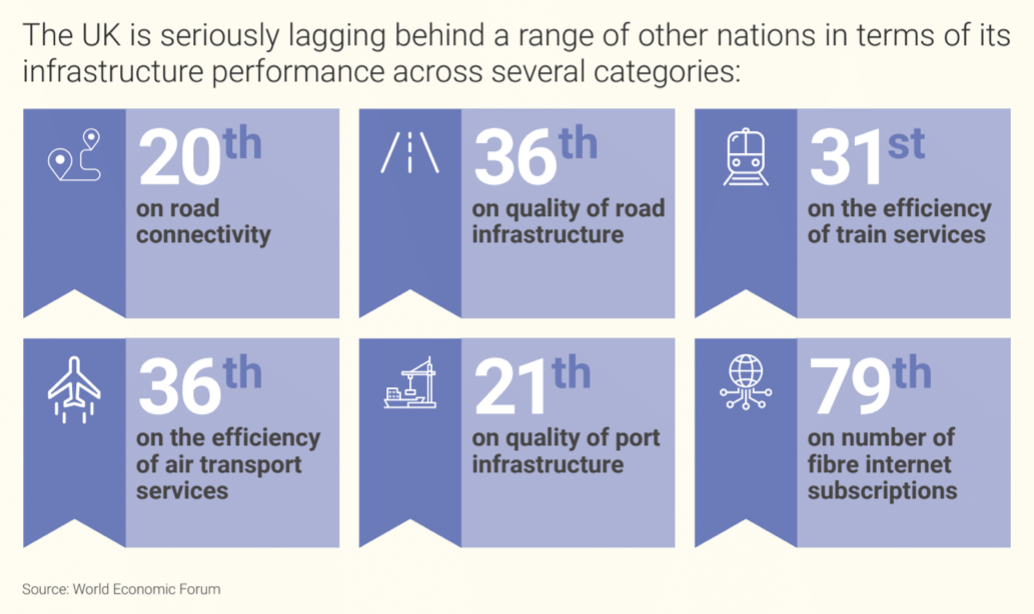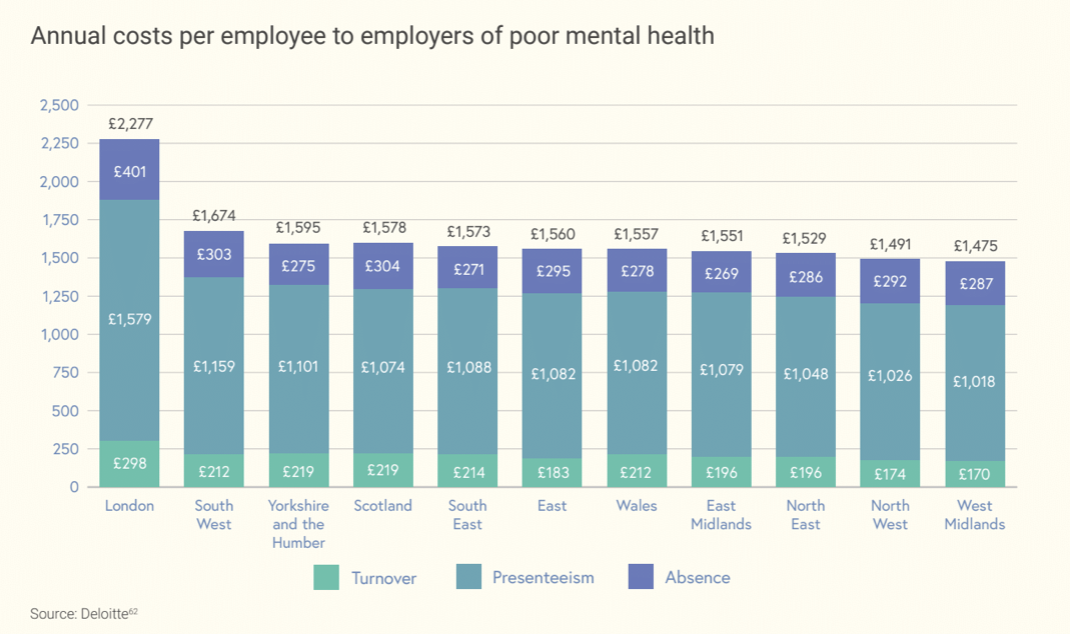
Ambition 2030: A Partnership for Growth
This final report builds on the findings of the previous two papers, and presents the need for a new National Prosperity Plan. We believe that this plan must be created and implemented by business, government and society, and help us deliver a fairer society in which everyone has the chance to fulfil their potential, and where economic success does not mean environmental damage or inequality. Below, we set out an effective delivery framework and five ways to achieve our vision.
Modern approaches to delivery on national imperatives
In order to achieve global competitiveness, green growth and prosperity in the next decade and beyond, we recognise that delivery is as important as policy. We believe that the National Prosperity Plan should be built around an innovative set of approaches for delivery:
- Accountability: Clearly defined objectives, delivered through National and Local Prosperity Scorecards that allow us to make decisions and track progress.
- Tailored responses: Creating Local Prosperity Strategies and giving local leaders the tools to deliver them.
- Collaboration: Building on LEPs to create Local Prosperity Partnerships that make business, government, institutions and society work towards a common goal.
- Purposeful business: Having businesses leading delivery, and being committed to playing their role in society.
- Consistency: Working together within a stable and long-term policy and regulatory framework.
Our vision and goals need to be built collaboratively, but as a starting point we have identified five immediate national imperatives that we develop in more detail.
National Imperatives
Our vision and goals need to be built collaboratively. As a starting point we have chosen five national imperatives and created ambitious policies to help us deliver these goals to ensure a stronger, fairer and more resilient economy.


1. Create at least one new globally competitive industry cluster in every region and nation of the UK by 2030
Business invests hundreds of millions in the innovations and technologies of the future. We pledge to do more to help the UK become a world leader in developing new globally competitive sectors. We present a number of possible measures, including the introduction of a new UK Competitiveness objective for regulators, which pushes them to consider interventions through the lens of an investment environment, growth and innovation.

2. Make lifelong learning a reality and halve the projected skills gap by 2030 with the introduction of a Help to Train package
Companies represent some of the biggest investors in traineeships in the UK. We recognise that we will need to go further and faster to support communities across the UK to recover from the pandemic. We pledge to work with the Government to develop proposals for Individual Learner Accounts, and to reform the apprenticeship levy to increase flexibility and ensure the delivery of more traineeship opportunities.

3. Focus Government’s buying power on the National Prosperity Plan, strengthening the Great British Supply Chain and delivering world class physical and digital infrastructure
We are excited about opportunities to invest in the UK’s future infrastructure, whether it is in transport or clean energy. We suggest the Government spends at least 1.2% of GDP on infrastructure every year to strengthen national supply chains. To aid the Government in developing long-term strategies we will provide advice, expertise and resources in creating a new Government Consulting Service.

4. Develop the National Deal for net zero homes – a pathway to decarbonisation of the housing stock and contribution to the low-carbon jobs transition
We are committed to delivering environmental leadership by taking comprehensive measures to achieve net zero as soon as possible, and call on the Government to agree on a National Deal on net zero Homes. This involves working with households to determine barriers to decarbonising homes and working with industry to solve those challenges by providing an appropriate policy environment for investment.

5. Close personal and community resilience gaps in mental and physical health, finances and wellbeing in each year over the next decade.
Businesses have massive physical footprints in communities up and down the UK. We plan to make a meaningful difference by working with Government to develop a national Good Work Standard, laying out the conditions of a good working environment. We also want to set an example by creating the Wellbeing at Work Guarantee, ensuring that all employees across the UK have immediate and costless access to support for their mental health.
Want to learn more? Get in touch
The Covid Recovery Commission’s work is now finished. The Secretariat was provided by WPI Strategy and the analysis conducted by WPI Economics. If you would like to find out more about their work please contact Nick@wpi-strategy.com or Matthew@wpieconomics.com
